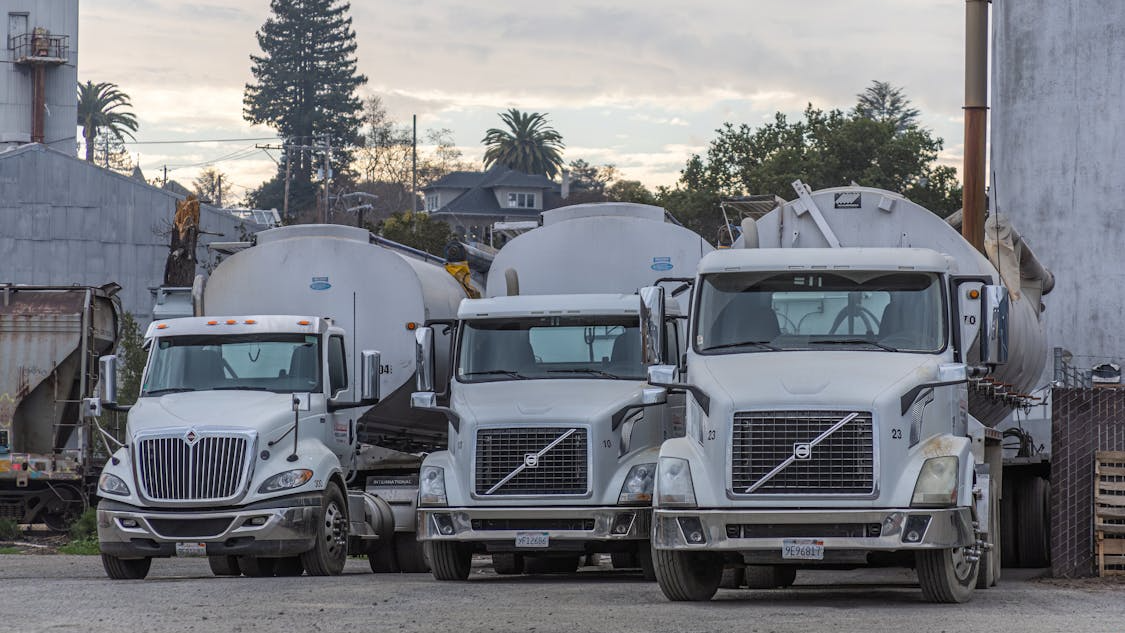
Do you remember when logistics was all about paper invoices, long phone calls, and clipboards in the warehouse?
There was a time when deliveries took days to coordinate. Dispatchers juggled endless spreadsheets. Drivers relied on printed maps. Warehouse staff picked and packed orders by hand, sometimes making costly mistakes. Back then, if you wanted to track a shipment, you called three different departments to piece together where the truck might be.
Fast forward to today. Artificial intelligence (AI) has turned that old way of doing things upside down. Now, with the tap of a screen, you can trace every package in real time. Predictive algorithms can tell you the best route before the truck even leaves the lot. Robots can sort and pick faster than a human ever could. And virtual assistants—skilled professionals working remotely—are stepping in to take on the busywork that once slowed logistics companies to a crawl.
Table of contents
- Understanding Virtual Assistants in Logistics
- What Is a Virtual Assistant?
- What Tasks Can a VA Handle in Logistics?
- Why Should Logistics Owners Care?
- How Virtual Assistants Fit in Today’s Logistics Landscape
- The Rise of Complexity and Competition
- Modern Logistics Challenges
- Where VAs Make a Difference
- Virtual Assistants and Artificial Intelligence
- How AI Enhances a Virtual Assistant’s Role
- Smart Tools VAs Use in Logistics
- Benefits of Hiring a Virtual Assistant for Your Logistics Business
- Are There Any Downsides?
- Potential Challenges and How to Address Them
- Real-Life Use Cases
- Case Study: Small Logistics Company
- Case Study: Large-Scale Transport Operation
- Lessons Learned from These Examples
- Getting Started with a Virtual Assistant
- Finding the Right VA
- Onboarding and Training
- Tools and Platforms to Use
- Staying Competitive in a Changing Industry
- Adapting to Trends
- Building a Scalable and Future-Proof Team
- Final Thoughts
- Key Takeaways
- Is a Virtual Assistant Right for You?

Understanding Virtual Assistants in Logistics
What Is a Virtual Assistant?
- A virtual assistant (VA) is a trained professional who works from a remote location to help businesses with different tasks. They don’t need to be in your office to be productive. VAs can handle a wide range of jobs that keep your operations organized and running smoothly, especially in the logistics industry.
What Tasks Can a VA Handle in Logistics?
- In logistics, there are many tasks that take up a lot of time but still need to be done carefully. These include:
- Tracking shipments and updating delivery information
- Scheduling drivers and organizing dispatch routes
- Creating and sending invoices, and making sure bills are paid
- Quickly responding to customers’ questions and concerns
- Managing product returns and keeping records updated
- Updating your customer database (CRM)
- Analyzing reports from AI tools to help you make smart decisions
Why Should Logistics Owners Care?
- By giving these tasks to VAs, logistics owners can reduce stress and workload on their main team. This means the core team can focus on growing the business, improving services, and building strong customer relationships. VAs are also more affordable than hiring full-time staff, which makes them a smart choice.

How Virtual Assistants Fit in Today’s Logistics Landscape
The Rise of Complexity and Competition
- Logistics has become more demanding than ever. Customers now expect fast, reliable service—sometimes even within a few hours. At the same time, big companies like Amazon and Walmart offer such quick service that it puts pressure on smaller logistics businesses to keep up.
Modern Logistics Challenges
- With smaller profit margins and more demanding clients, even small mistakes can cause big problems. A delay in delivery, a missing update, or a slow response to a customer can result in lost business. Trying to do everything manually can lead to burnout and lower service quality.
Where VAs Make a Difference
- Virtual assistants can take over routine tasks so your in-house team can focus on solving bigger challenges. They help keep things organized, fast, and accurate. This allows your business to run better, serve clients faster, and avoid mistakes.
Virtual Assistants and Artificial Intelligence
How AI Enhances a Virtual Assistant’s Role
- Artificial Intelligence (AI) can do amazing things like suggest the best routes for delivery, predict delays, and automate stock updates. But AI still needs people to make sense of the data and take action. That’s where virtual assistants are important. They use the information from AI tools to make sure everything works smoothly and customers are happy.
Smart Tools VAs Use in Logistics
- Here are some tools that virtual assistants commonly use:
- CRM Systems (like HubSpot or Zoho): Keep track of customer information and communication.
- Transportation Management Systems (TMS): Track deliveries and update their progress.
- Inventory Software (like NetSuite or Fishbowl): Make sure stock levels are correct to avoid delays.
- AI Chatbots: Help answer customer questions quickly, even at night.
- Data Dashboards: Show reports about delays, costs, and profits to help in decision-making.
Together, AI and VAs create a smooth system that runs faster and more efficiently.

Benefits of Hiring a Virtual Assistant for Your Logistics Business
1. Cost Savings and Efficiency
Hiring a VA is usually cheaper than hiring someone full-time. You don’t need to pay for an extra desk, computer, or benefits. You only pay for the hours or services you need.
2. Better Customer Service
AI tools are fast, but they can’t replace real human interaction. VAs add that personal touch. They talk to customers in a friendly and professional way, which builds trust.
3. Improved Time Management
By giving tasks to VAs, your core team can focus on what matters most—like making deliveries faster or finding new clients.
4. Focus on Core Operations
Your in-house staff can stop worrying about paperwork or customer emails and spend more time improving delivery systems and operations.
What to Consider Before Hiring a VA
Are There Any Downsides?
- Like any setup, there are a few things to watch out for:
- Communication problems can happen if expectations are not clear.
- Data privacy is important. Make sure your business info is protected.
Potential Challenges and How to Address Them
- To prevent problems:
- Use tools like Trello, Slack, or ClickUp to manage tasks
- Set clear instructions and expectations early on
- Check in regularly using Zoom or chat
- Use contracts and secure login tools to protect data
With a good process, most businesses find that VAs are reliable and trustworthy partners.

Real-Life Use Cases
Case Study: Small Logistics Company
- A small courier service wanted to grow but couldn’t afford more full-time staff. After hiring a VA, they were able to:
- Send invoices faster
- Reply to customer questions quickly
- Keep better track of their deliveries
Case Study: Large-Scale Transport Operation
- A bigger transport business had problems with customer complaints and late replies. After hiring a few VAs, they:
- Offered 24/7 support for clients
- Reduced delivery delays by tracking data better
- Organized their documents and reports
Lessons Learned from These Examples
- Whether your business is small or large, VAs help you:
- Save time
- Offer better service
- Work more efficiently
Getting Started with a Virtual Assistant
Finding the Right VA
- Look for someone with experience in logistics or office work. You can find them on trusted websites or through virtual assistant agencies.
Onboarding and Training
- Even if your VA is skilled, they still need time to learn how your business works. Help them by:
- Giving clear instructions
- Sharing video guides
- Setting a short trial period
Tools and Platforms to Use
- Make the work smoother with tools like:
- Google Workspace: For files and collaboration
- Slack or Zoom: For communication
- Trello or Asana: For task tracking and deadlines

Staying Competitive in a Changing Industry
Adapting to Trends
- Technology is changing the way logistics works. But people still want to talk to real humans when they have problems. VAs help you stay modern while still giving that personal service.
Building a Scalable and Future-Proof Team
- Instead of hiring full-time workers every time you grow, VAs give you flexibility. You can hire more when needed, and reduce hours during slow seasons—without layoffs.
Final Thoughts
Key Takeaways
- VAs help logistics businesses run more smoothly
- They reduce stress, save money, and improve service
- They work best when combined with AI tools
Is a Virtual Assistant Right for You?
- If you want to grow, improve service, and make work easier without spending too much, then hiring a VA might be the next best step. There are many skilled VAs out there, ready to support your business.
